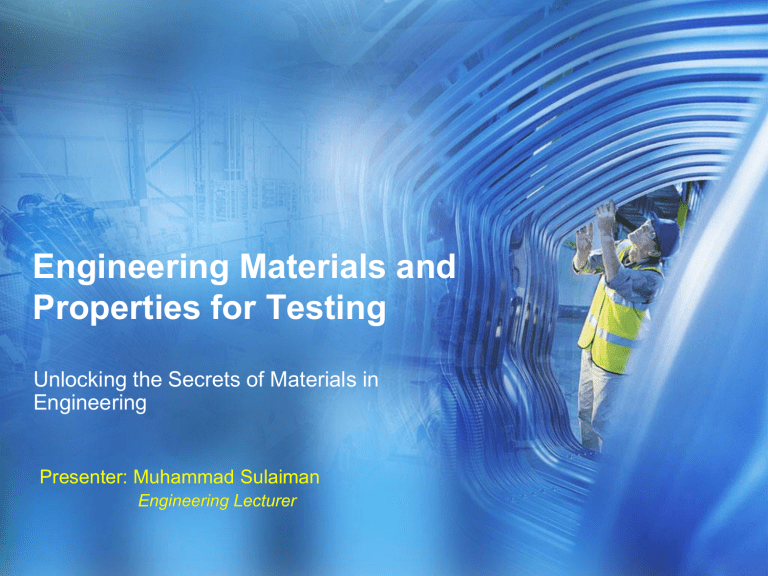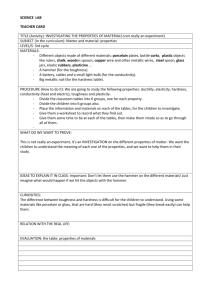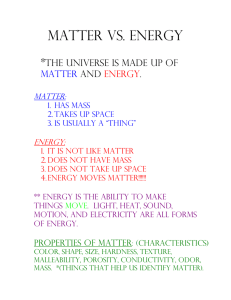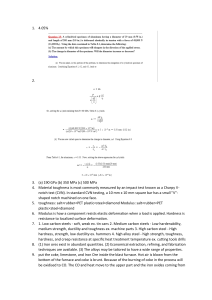
Engineering Materials and Properties for Testing Unlocking the Secrets of Materials in Engineering Presenter: Muhammad Sulaiman Engineering Lecturer Introduction Learning Objectives • Understand the fundamental properties of engineering materials. • Recognize the significance of material testing in engineering. • Relate theoretical knowledge to practical applications. Importance of Materials in Engineering • Materials are the building blocks of engineering. • They impact the design, functionality, and performance of engineering products. • The right material choice is crucial for success in engineering projects. • 1,000 different materials make up an automobile Classification of Engineering Materials • Metals, Polymers, Ceramics, Composites • Each category has unique properties. • Choosing the right material is essential for specific applications. Properties of Engineering Materials • Mechanical properties (strength, hardness, ductility) • Physical properties (density, conductivity, thermal expansion) • Manufacturing properties (welding, machined, casting, formed) • Chemical properties (oxidation, corrosion) Selection Criteria • Most designers select materials considering: – – – – Properties Availability Cost Manufacturability Strength • Strength is defined as the ability of a material to withstand force without breaking or permanently changing shape. – Different types of strength resist different types of forces. Strength Toughness • Toughness is the ability to withstand shock loading without fracture. Materials that have high toughness generally have high hardness and high ductility. Hardness • Hardness is defined as the ability of a material to resist abrasive wear and indentation or deformation. Hardness is an important property required for cutting tools. Material Testing Methods • Non-destructive testing (NDT) • Destructive testing • Ensures material reliability and safety in various applications Material Testing Methods Destructive Testing Methods Interactive Group Discussion • What materials have you encountered in your studies or work? • Share experiences and insights. • Discuss the importance of materials in specific engineering projects. Formative Assessment • Quick quiz to gauge understanding. • Immediate feedback to address any misconceptions. QUIZ Q. Which property of a material describes its ability to absorb energy without undergoing permanent deformation? A) Hardness B) Toughness C) Brittleness D) Stiffness QUIZ Q. Which property of a material describes its ability to absorb energy without undergoing permanent deformation? A) Hardness B) Toughness ----- Answer C) Brittleness D) Stiffness QUIZ Q. Which of the following properties is crucial for a material to resist the penetration of sharp objects or abrasion? A) Toughness B) Hardness C) Elasticity D) Conductivity QUIZ Q. Which of the following properties is crucial for a material to resist the penetration of sharp objects or abrasion? A) Toughness B) Hardness --- Answer C) Elasticity D) Conductivity Additional Resources Tensile test https://www.youtube.com/watch?v=D8U4G5kcpcM Ductility/Brittleness https://www.youtube.com/watch?v=4poXNwRcAY https://www.youtube.com/watch?v=gGXHdgsFA9s Material properties https://www.youtube.com/watch?v=BHZALtqAjeM Materials Database http://www.matweb.com/search/search.aspx http://www.makeitfrom.com/property-search THANK YOU




